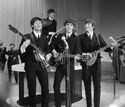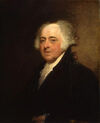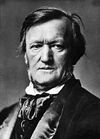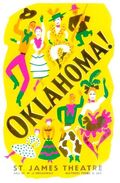| This article or section is in the middle of an expansion or major restructuring. You are welcome to assist in its construction by editing it as well. |
Like many authors, Harry Turtledove references the broad impact musicians and their work have (or have had) on society. Sometimes, these references can give a reader insight into how a particular timeline differs from OTL. Other times, they are more incidental and designed to invoke a specific era or culture. What follows is a list of such references which can be found in Turtledove's body of work, organized by the musician, song-writer, or performer.
Note: As many homages are subtle, they can easily escape the notice of any given reader. Therefore we strongly encourage anyone who has found, or believes he has found, an homage not already on this list, or by an author not represented, to add it.
Artists
The Andrews Sisters
The Andrews Sisters were a close harmony singing group, consisting of sisters LaVerne Sophie Andrews (contralto; 1911–1967), Maxene Angelyn Andrews (soprano; 1916–1995), and Patricia Marie "Patty" Andrews (mezzo-soprano; lead; 1918-2013).
In Worldwar, Hank Vernon suggests that he and Jens Larssen listen to the Andrews Sisters during the journey aboard the Duluth Queen. Larssen prefers to listen to news, and Vernon complies.
Johann Sebastian Bach
Johann Sebastian Bach (31 March 1685 – 28 July 1750) was a German composer and organist whose sacred and secular works for choir, orchestra, and solo instruments drew together the strands of the Baroque period and brought it to its ultimate maturity.
Bach is referenced several times in Turtledove's work. In the novel In the Presence of Mine Enemies, Bach is one of the composers favored by the Nazi Party well into the 21st century.[1]
In the Colonization series, German spaceman Johannes Drucker, who stays in the Hotel Elephant, Weimar, where Bach had once stayed.[2] Exiled Fleetlord Straha has little use for Tosevite music, but he does find the patterns in Bach's work interesting.[3]
The Beatles
The Beatles were an English rock band formed in Liverpool in 1960, and one of the most commercially successful and critically acclaimed acts in the history of popular music. The group's best-known lineup consisted of John Lennon (rhythm guitar, vocals), Paul McCartney (bass guitar, vocals), George Harrison (lead guitar, vocals) and Ringo Starr (drums, vocals).

The Beatles, not The Beetles
In Hitler's War Turtledove opens Sergei Yaroslavsky's scene where he returned from fighting in Czechoslovakia with a rephrasing of two lines from The Beatles "Back In The USSR" taking the lines:
- "I'm back in the USSR / You don't know how lucky you are, boy."
and changing them to reflect the casualties the Soviet Air Force suffered to read:
- "Back in the USSR. Sergei Yaroslavsky didn't realize how lucky he was ..."[4]
In the novel Thessalonica, the character Menas kills a Slav warrior in battle with a war hammer. Turtledove describes the scene thusly: "Bang! Bang! Menas' silvered hammer came down upon his head. The Slav writhed, than lay still. Menas hit him again, to make sure he was dead". This is an allusion to the Beatles' "Maxwell's Silver Hammer", about a serial killer who beats people to death with his silver hammer.
At least two Beatles references are found in Worldwar. In Aftershocks, Hal Walsh is fond of a popular British quartet called The Beetles. POV David Goldfarb, who thinks their music is just noise, speculates that the name comes from their insectoid shaven-headed appearance. In Homeward Bound, the busty showgirl on a violent TV game show is consistently referred to as Lovely Rita, the title of another Beatles song.
In "They'd Never--", Mort Pfeiffer assigns the names George, John, Paul, and Ringo to the green aliens who have abducted him.
Ludwig van Beethoven
In addition to his alternate posthumous role in The Two Georges, Ludwig van Beethoven is briefly referenced in other works. In the novel In the Presence of Mine Enemies, we learn Beethoven is one of the musicians approved by the German Reich.[5]
In The War That Came Early, as she contemplates the state of the world and the resistance certain musicians met from their respective governments, Peggy Druce wonders if the music of people such as Dmitri Shostakovich would outlast politics, much as Beethoven's music had.[6]
Red Blanchard
Richard Bogardus "Red" Blanchard, Jr. (June 11, 1920 – June 16, 2011) was an American radio show personality in California markets from the mid-1940s to the mid-1960s whose shows were novelty- and comedy-oriented. He was also a musician and record producer and released a few novelty songs of his own in the early 1950s. Blanchard also added his voice to novelty songs written and performed by recording personality Nervous Norvus, and to radio commercials. In 1965 Blanchard became the technical director of the Los Angeles station KHJ-TV until he retired in 1978.
In "Hindsight," Pete Lundquist briefly talks to Michelle Gordian about Blanchard, including his popularizing of the slang term "zorch," which means strange and marvelous.[7]
Ole Bull
Ole Bornemann Bull (5 February 1810 – 17 August 1880) was a Norwegian violinist and composer, who frequently toured the United States.
In The Man With the Iron Heart, Diana McGraw sees a statue of Bull in Loring Park, Minneapolis.[8]
Aaron Copland
Aaron Copland (November 14, 1900 – December 2, 1990) was an American classical composer, composition teacher, writer, and later in his career a conductor of his own and other American music. He was instrumental in forging a distinctly American style of composition, and is often referred to as "the Dean of American Composers". In the 1960s, however, Copland turned more to simply conducting rather than composing. In the 1950s, he became more outspokenly anti-Communist after years of Communist sympathies.
Copland died in 1990 of Alzheimer's and respiratory failure.
In The War That Came Early: The Big Switch, in the aftermath of the Hess Agreement, when Britain and France align with their former enemy Germany against the Soviet Union, Peggy Druce realizes she couldn't hear the music of Dmitri Shostakovich, or Aaron Copland for that matter, without thinking "Oh, yeah. He's a Red".[9]
The Crome Syrcus
The Crome Syrcus was an American rock band of the late 1960s and early 1970s. Originally founded in 1966 in Seattle, the band quickly moved to San Francisco and gained some minor success opening for more popular acts. Most of their recorded work was produced in 1968, including their only album. They officially broke up in 1973, but they hadn't recorded in some time.
The Crome Syrcus concert is pre-empted by an attack of shoggoths in "The Fillmore Shoggoth".
Tommy Dorsey
Thomas Francis "Tommy" Dorsey, Jr. (November 19, 1905 – November 26, 1956) was an American jazz trombonist, composer, conductor and bandleader of the Big Band era.
Dorsey is referenced in "Must and Shall". His reputation in that timeline seems to be the same as in OTL, even though history diverged 41 years before his birth.
Sherman Edwards

Sit down, John! Sit down, John! For God's sake, John, sit down!
Sherman Edwards wrote the music and lyrics for the musical comedy 1776. The book was written by Peter Stone. The play tells the story of the efforts of a small group of Founding Fathers, specifically Benjamin Franklin, Thomas Jefferson, Richard Henry Lee, and especially John Adams to convince their colleagues in the Continental Congress to declare the thirteen rebellious British colonies they represent to be an independent nation, the United States of America.
In the play's first scenes, Adams is portrayed as being engaged in a lonely battle to convince a hostile Congress of the necessity of declaring independence. In the show's opening number, Adams harrangues his colleagues to "Vote for Independency!" but they interrupt their debate over whether to open the windows of Liberty Hall just long enough to tell him repeatedly "For God's sake, John, sit down!"
The play is invoked in Advance and Retreat. Turtledove portrays a sorcerous analog of the American Civil War Battle of Franklin, at which half a dozen Confederate generals were killed in action, including a brigade commander named John Adams (no relation to President Adams). Turtledove creates a number of punnily-named characters to stand in for the unfortunate rebel leaders. Adams's analog is named For Gods' Sake John, an homage to Edwards's play.
Benny Goodman
Benjamin David "Benny" Goodman (May 30, 1909 – June 13, 1986) was an American jazz and swing musician, clarinetist and bandleader, known as the "King of Swing".
In the mid-1930s, Benny Goodman led one of the most popular musical groups in America. His concert at Carnegie Hall in New York City on January 16, 1938, is described by critic Bruce Eder as "the single most important jazz or popular music concert in history: jazz's 'coming out' party to the world of 'respectable' music."
Goodman's bands launched the careers of many major names in jazz. During an era of segregation he also led one of the first well-known integrated jazz groups. Goodman continued to perform to nearly the end of his life, while exploring an interest in classical music.
Goodman is referenced in "Must and Shall". His reputation in that timeline seems to be the same as in OTL, even though history diverged 45 years before his birth.
George Frideric Handel
George Frideric Handel (5 March 1685 – 14 April 1759) was a German-born Baroque composer who is famous for his operas, oratorios, and concerti grossi. Handel spent most of his adult life in England. His most famous work is probably The Messiah, a musical commemoration of Jesus' life.
In In the Presence of Mine Enemies, Handel is one of several composers whose work is approved of by the Nazi Party. He is also one of several composers whose work Susanna Weiss actually enjoyed, despite his music being favored by the Nazis.[10]
In The Two Georges, Handel's "Water Music" plays on a phonogram in the Independence Party headquarters in Boston.[11]
Joseph Haydn
Franz Joseph Haydn (31 March 1732 – 31 May 1809) was an Austrian composer. He was one of the most prominent composers of the classical period, and is called by some the "Father of the Symphony" and "Father of the String Quartet".
In the novel In the Presence of Mine Enemies, Haydn is one of several composers whose work is approved of by the Nazi Party. He is also one of several composers whose work Susanna Weiss actually enjoyed, despite his music being favored by the Nazis.[12]
Janis Ian
Janis Ian (born Janis Eddy Fink; April 7, 1951) is an American singer-songwriter, columnist, and author of science fiction. One song written by her, "God and the FBI", contains the line "Stalin was a Democrat", which influenced Harry Turtledove to write "Joe Steele". She is the dedicatee of both that story and its longer novelized form.
Iosif Kobzon
Iosif (Joseph) Davydovich Kobzon (b. 11 September 1937) is an iconic Ukrainian crooner, who was acclaimed as "the official voice of the Soviet Union".
In the short work "Black Tulip", POV Sergei, a Soviet soldier, finds the screams of wounded and dying Afghani Mujahideen to be sweeter than the voice of Iosif Kobzon.
Tom Lehrer
Thomas Andrew Lehrer (born April 9, 1928) is an American musician and mathematician, best known for the pithy, humorous songs he recorded in the 1950s and 1960s.
In A World of Difference, when the American space shuttle Athena lands on Minerva and the crew confirms that it had beaten the Soviet Tsiolkovsky by several minutes, Irv Levitt paraphrases one of Tom Lehrer's songs, declaring "In Baikonur our name is cursed, When they find out we landed first!"[13]
The Loading Zone
The Loading Zone was an American rock band of the late 1960s and early 1970s. Originally founded in 1966 by Paul Fauerso, the group gained some minor success opening for more popular acts. They produced one album in 1968 which was poorly received by critics. The band disbanded 1969. However, Fauerso reformed the band that same year. They released a second LP in 1970, but again broke up in 1971.
The Loading Zone scheduled performance is pre-empted by an attack of shoggoths in "The Fillmore Shoggoth".
Glenn Miller
Alton Glenn Miller (March 1, 1904 – missing in action December 15, 1944) was an American jazz musician (trombone), arranger, composer, and bandleader in the swing era. He was one of the best-selling recording artists from 1939 to 1943, leading one of the best known "Big Bands". While he was traveling to entertain U.S. troops in France during World War II, the plane Miller was aboard disappeared in bad weather over the English Channel. No trace was ever found.
In The War That Came Early: The Big Switch, Peggy Druce listens to Glenn Miller on the radio. The music makes her happy briefly, as the Nazis hate jazz, and she hates the Nazis. [14]
Wolfgang Mozart
Wolfgang Amadeus Mozart (27 January 1756 - 5 December 1791) was a prolific and influential Austrian composer of the Classical era. His more than 600 compositions include works widely acknowledged as pinnacles of symphonic, concertante, chamber, piano, operatic, and choral music, and he is among the most enduringly popular of classical composers.
In In the Presence of Mine Enemies, Mozart is considered to be a great musician by the Nazi Party well into the 21st century.[15]
Cole Porter
Cole Albert Porter (June 9, 1891 – October 15, 1964) was an American composer and songwriter. Unlike many successful Broadway composers of the time, Porter wrote the lyrics, as well as the music, for his songs. Although disabled in horseback riding accident in 1937, Porter continued to work. Some of his best known plays are Anything Goes, Can-Can, Silk Stockings, and Kiss Me, Kate.
In The Man With the Iron Heart, Bernie Cobb contemplates the lyrics of Porter's song "Just One of Those Things," particularly the part about having gossamer wings.[16]
Alla Pugacheva

Personally, I'd rather listen to Alla Pugacheva than dying men, but that's me.
Alla Borisovna Pugacheva (born 15 April 1949) is perhaps the best known musical performer in Russia, her career having started in 1965 (during the Soviet Union) and continuing to this day. She is the most successful Russian performer in terms of record sales and popularity.
In the short work "Black Tulip", POV character Sergei, a Soviet solider fighting in Afghanistan, finds the screams of wounded and dying Mujahideen to be sweeter than the voice of Alla Pugacheva.
R.E.M.
R.E.M., an American rock band from Athens, Georgia, was formed in 1980 by singer Michael Stipe, guitarist Peter Buck, bassist Mike Mills, and drummer Bill Berry. The band's last performance was in 2011. Their 1987 hit song "It's the End of the World as We Know It (And I Feel Fine)" provided the title of Turtledove's short story "It's the End of the World As We Know It, And We Feel Fine".
In Supervolcano: Eruption, Kelly Birnbaum recalled "It's the End of the World ..." in Yellowstone National Park but didn't feel fine since she was anticipating the eruption of the supervolcano right under her at any minute.[17]
Django Reinhardt
Django Reinhardt (23 January 1910 – 16 May 1953) was a pioneering virtuoso jazz guitarist and composer. Born in Belgium of Romani ("Gypsy") descent, Reinhardt achieved his greatest fame in France in the years before and after World War II, inventing an entirely new style of jazz guitar technique (sometimes called 'hot' jazz guitar) that has since become a living musical tradition within French gypsy culture.
Reinhardt was actually able to continue to perform in France during the Nazi-occupation, despite the Nazis' disdain for both Gypsies and jazz. He continued to perform after the war, until he retired in 1951. He died of a brain hemorrhage in 1953.
In The Big Switch, in the aftermath of Hess Agreement of 1940, which sees France and Britain join with Germany against the Soviet Union, Peggy Druce wonders if the French government might decide to persecute the jazz-playing Gypsy guitarist Reinhardt as a sop to their new Nazi allies.[18]
Steely Dan
The rock band Steely Dan released the single "Kid Charlemagne" in 1976. The song, written by Walter Becker and Donald Fagen, is very loosely based on the real Owsley Stanley, a chemist who came to be known for his high-quality LSD in 1960s San Francisco. While Stanley was never called "Kid Charlemagne", a character by that name with a reputation for producing high-quality LSD appears in the short work "The Fillmore Shoggoth", selling his product to the members of the band HPL.
Barnabas von Geczy
Barnabas von Geczy (4 March 1897 - 2 July 1971) was a Hungarian violinist, composer, and bandleader. Born in Budapest when Hungary was part of the Austro-Hungarian empire, he moved to Germany after World War I, where he would live for the rest of his life. In his lifetime, von Geczy was popular throughout Central Europe and even played with the Philadelphia Orchestra in the United States.
Von Geczy is rumored to have been Adolf Hitler's favorite band leader, a fact referenced in The War That Came Early: The Big Switch, when several characters listen to one of his performances on the radio.[19]
Al Stewart
Al Stewart is a Scottish singer-songwriter and folk-rock musician. In Supervolcano: Eruption, the song "Came Along Too Late" was one composed and performed by the fictional band Squirt Frog and the Evolving Tadpoles. In the "Author's Note" at the end of the volume, Turtledove mentions he wrote an earlier version of the song when his daughter Rebecca asked for songs on historical themes. He also indicated it can be sung to the tune of "Josephine Baker" on Stewart's album Last Days of the Century.[20] Further, in the novel one band member of Squirt Frog describes their music as somewhere between Frank Zappa and Al Stewart.[21]
In the introduction to the short story "Occupation Duty"[22], Turtledove quotes Al Stewart's song "Nostradamus": the more it changes, the more it stays the same. It refers to the story's theme that Palestine would still be war-torn even if the POD was 3000 years ago.
Richard Wagner

Richard Wagner: Only the Nazis appreciate my work in Turtledove stories? And even then, not all of them either? Well Turtledove can **** **** **** ****!
German opera writer Richard Wagner drew on the epic poem, the Nibelungenlied, when he composed his own magnum opus, Der Ring des Nibelungen. Turtledove also makes use of characters and settings of Nibelungenlied in "The Catcher in the Rhine," although whether or not he was going from the original poem or Wagner's later work is probably academic. It is also very obliquely referred to by Pete McGill in Coup d'Etat.
In the Southern Victory novel American Front, Confederate art afficionado Alfred Forbes derisively dismisses the idea that the United States could be capable of any real cultural refinement. He suggests that the only foreign art that Americans import is German opera, and proceeds to give a decidedly un-complimentary stereotype of a generic scene from Der Ring des Nibelungen.
In In the Presence of Mine Enemies, we finally encounter someone who remembers Wagner fondly: the Nazis. Wagner is held up as an example of an Aryan creative cultural force, and is celebrated in official cultural circles. Among those outside those circles, such as Susanna Weiss, Wagner is despised--though as a Jew, Weiss certainly has reason to object to the Nazis' pretense of the Aryans being the only creators of valid culture, a pretense which the Nazis used Wagner to advance. Perhaps her view of Wagner is shaded by this dynamic.
In West and East, Peggy Druce and Constantine Jenkins attend a performance of Wagner's Tannhäuser. Like non-Nazis in other Turtledove works, they are unimpressed by Wagner, but find this particular opera relatively inoffensive.
In The Big Switch Willi Dernen expresses disapproval of Wagner to himself, though he does not do so publicly for fear of political consequences.
(It's probably the case that Turtledove is sharing his own opinions about Wagner in these scenes.)
In Coup d'Etat, appreciation of the beauty of some of Wagner's compositions, including Tristan und Isolde, is expressed--by Jewish characters, of all people!
Also, when Kelly Birnbaum (Jewish as well) is awaiting a desperate helicopter rescue in Yellowstone National Park before the supervolcano can erupt, she thinks of Wagner's "The Ride of the Valkyries" from Apocalypse Now! and is half disappointed when she didn't hear his "fierce, churning music" play in real life.[23]
Compositions
"Der Führer's Face"
During the Race Invasion of Tosev 3, Spike Jones recorded "The Fleetlord's Face", a humorous swipe at Fleetlord Atvar. This is an analog of Jones' 1942 satirical song "Der Führer's Face".
"God Bless America"
In the Southern Victory series, a patriotic American song "God Bless the Stars and Stripes" is best known by the version sung by Kate Smith. This is an analog of "God Bless America", also best known by the Smith version.
"Heigh-Ho"
"Heigh-Ho" is a song from Walt Disney's 1937 animated film Snow White and the Seven Dwarfs, written by Frank Churchill (music) and Larry Morey (lyrics). It is sung by the group of seven dwarfs as they work at a mine with diamonds and rubies, and is one of the best-known songs in the film. In Bombs Away, when Gustav Hozzel and Rolf Mehlen are escaping a burning building via a tunnel in the basement to another building, Rolf begins whistling the tune from "Heigh-Ho". This initially puzzles Gustav but he realizes the tunnel was much like the mine of the dwarfs in the film and digging it had been dwarf like work.[24]
Kiss Me, Kate
Kiss Me, Kate is a musical play featuring Cole Porter songs. The story involves the production of a musical version of William Shakespeare's The Taming of the Shrew and the conflict on and off-stage between Fred Graham, the show's director, producer, and star, and his leading lady, his ex-wife Lilli Vanessi.
In Turtledove's "Father of the Groom", at the wedding of Archimedes Kidder and Kate, after the vows and before the minister can say anything else, Archimedes says "Kiss me, Kate!". She does so without understanding the reference which would be to either this musical or a direct quote of a line in Shakespeare's Shrew.
Mexican Hayride
Mexican Hayride is a 1944 Broadway musical with a script by Herbert & Dorothy Fields, and songs by Cole Porter. In the Southern Victory universe, there is a 1943 play called Jose's Hayride, which is not described in any detail, but would seem to be an analog of this play.
Oklahoma!

A poster for Oh--Sequoyah! with the title very badly misspelled.
Richard Rodgers (1902–1979) and Oscar Hammerstein II (1895–1960) were an influential, innovative and successful American musical theatre writing team, usually referred to as Rodgers and Hammerstein. On March 31, 1943, their first musical collaboration Oklahoma! premiered to wide acclaim, and in 1955 its title song was adopted as the state song of Oklahoma. In The Grapple, Oh--Sequoyah! was released on Broadway in 1943. In the Southern Victory timeline the state of Oklahoma is named Sequoyah.
Mary Poppins
Mary Poppins is a 1964 musical motion picture about an English nanny with magical powers, adapted by Walt Disney Studios from a novel by Australian author Pamela L. Travers. Brothers Richard & Robert Sherman wrote the songs. In The Gladiator, Eduardo Caruso tells Annarita Crosetti and Gianfranco Mazzilli that a popular song in the home timeline contains the line "a spoonful of sugar makes the medicine go down."
The Producers
The Producers is a musical adapted by Mel Brooks from his 1968 film of the same name. The story concerns two theatrical producers who scheme to get rich by overselling interests in a bad Broadway play, assured to be a flop, called Springtime for Hitler. In Turtledove's In the Presence of Mine Enemies where Germany won WWII, there is a similar musical about a theatre owner who booked a terrible play about Churchill and Stalin becoming a smash hit against the producer's plans.[25]
Sir Patrick Spens
Sir Patrick Spens is an anonymous ballad about a ship which sinks en route from Scotland to Norway. In Ruled Britannia, William Shakespeare compares his lack of progress in writing Love's Labours Won to the sinking ship in the song.[26]
Miscellanea
Madonna and Britney Spears Kiss
At the 2003 MTV Music Video Awards, singers Madonna (b. 1958) and Britney Spears (b. 1981) shared a prolonged kiss on stage. Images of that kiss gained substantial notoriety for a time.
In the short story "Bedfellows", when O and W kiss for the first time after they are married, an onlooker asks "Is that hotter than Madonna and Britney or what?"[27]
References
- ↑ In the Presence of Mine Enemies, pg. 243.
- ↑ Down to Earth, p. 96.
- ↑ Second Contact, pg. 241.
- ↑ Hitler's War, pg 91.
- ↑ In the Presence of Mine Enemies, pg. 243.
- ↑ The Big Switch, pg. 345.
- ↑ Kaleidoscope, pg. 123-124, MPB.
- ↑ The Man With the Iron Heart, pg. 282.
- ↑ The Big Switch, pg. 345.
- ↑ In the Presence of Mine Enemies, pg. 243.
- ↑ The Two Georges, p. 235.
- ↑ In the Presence of Mine Enemies, pg. 243.
- ↑ A World of Difference, p. 34.
- ↑ The Big Switch, pg. 344
- ↑ In the Presence of Mine Enemies, pg. 243.
- ↑ The Man With the Iron Heart, pg. 303.
- ↑ Eruption, pg. 144, HC.
- ↑ The Big Switch, pg. 345.
- ↑ The Big Switch ch 7
- ↑ Eruption, pg 420, HC.
- ↑ Ibid, pg. 31.
- ↑ See, e.g.Atlantis and Other Places pg. 243.
- ↑ Eruption, pg. 146.
- ↑ Bombs Away, pg. 415, HC.
- ↑ In the Presence of Mine Enemies, pg. 139.
- ↑ Ruled Britannia, p. 76.
- ↑ See, e.g., Atlantis and Other Places, HC pg. 71.